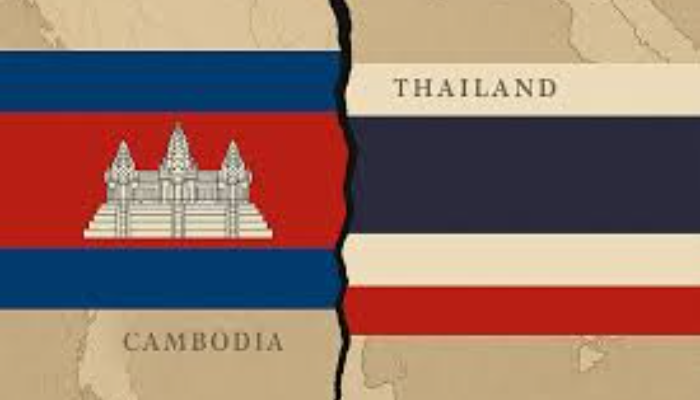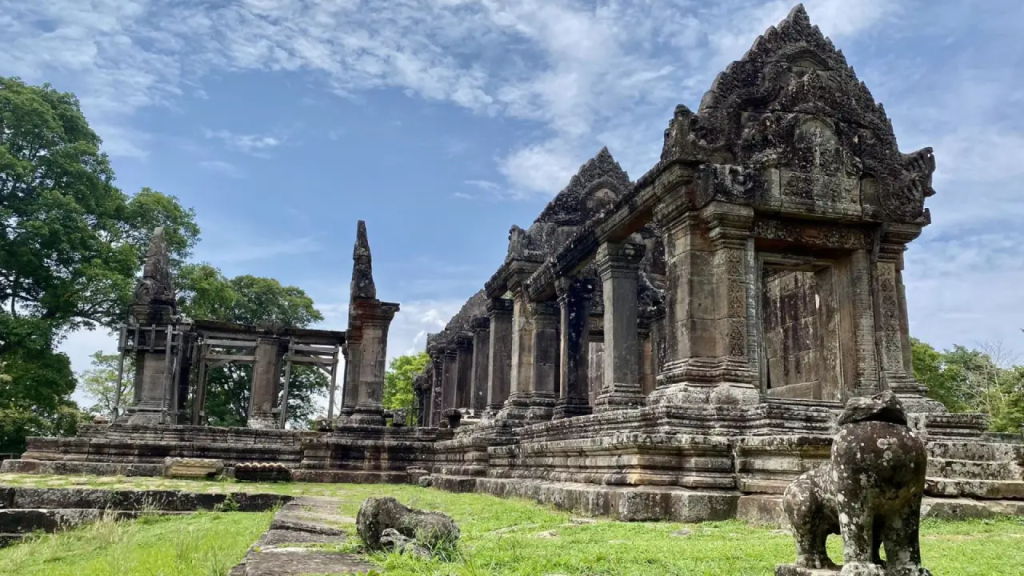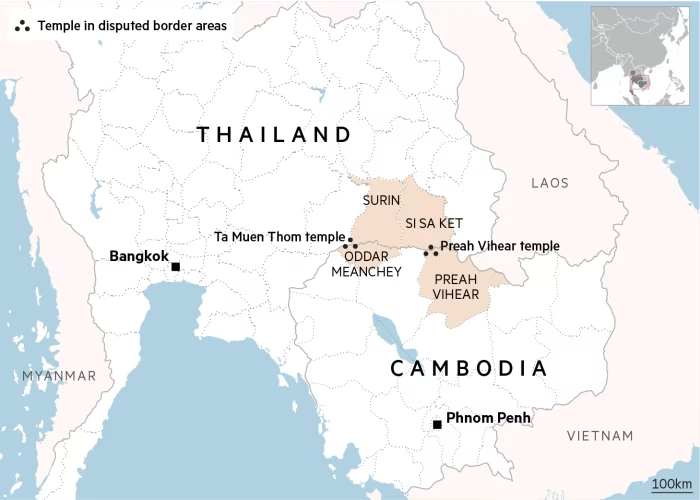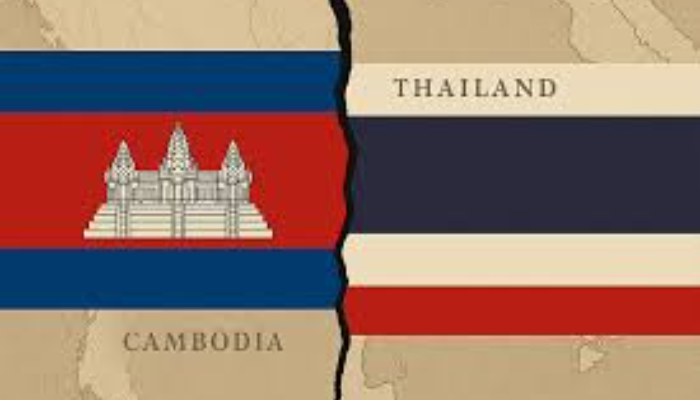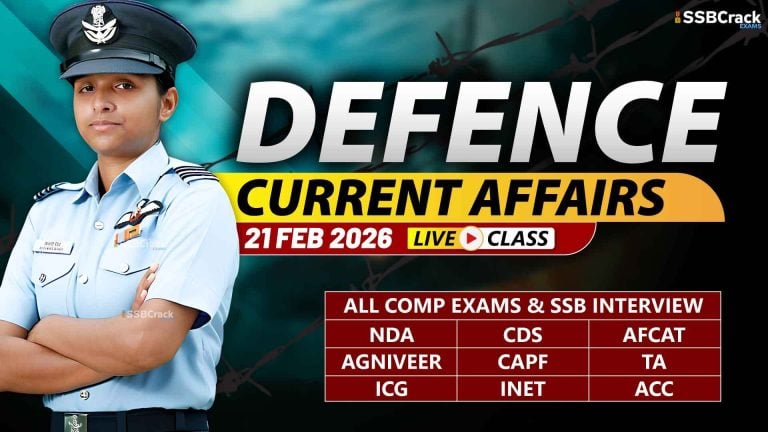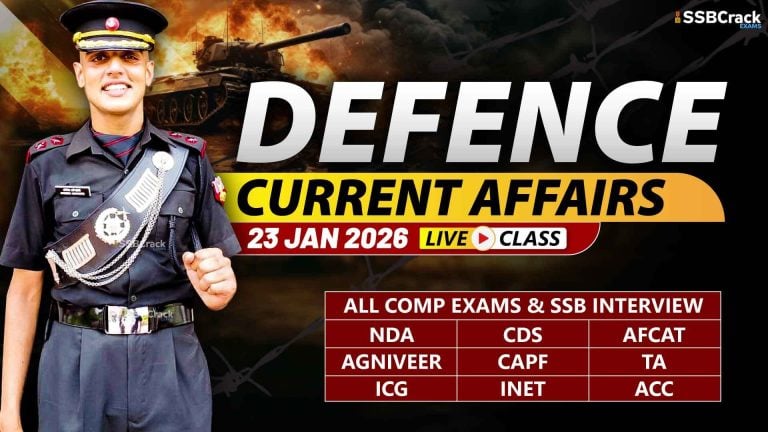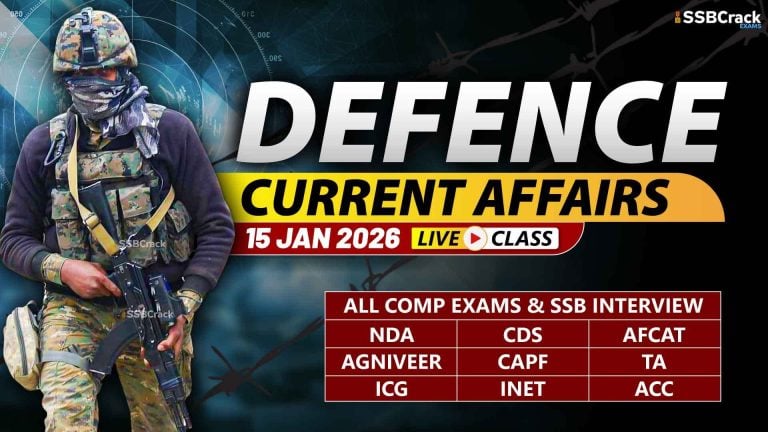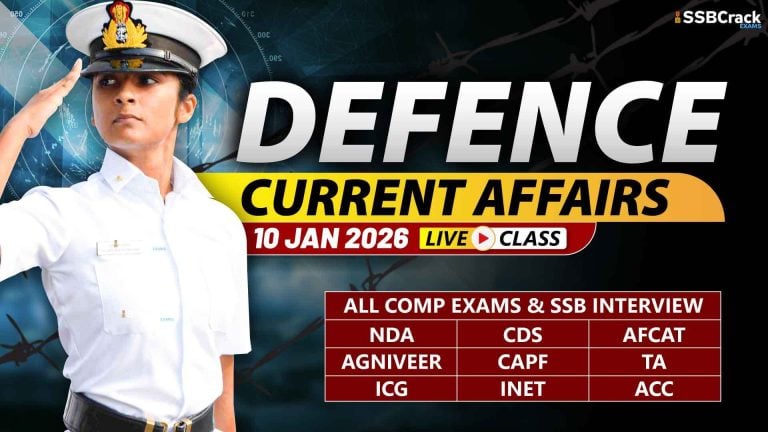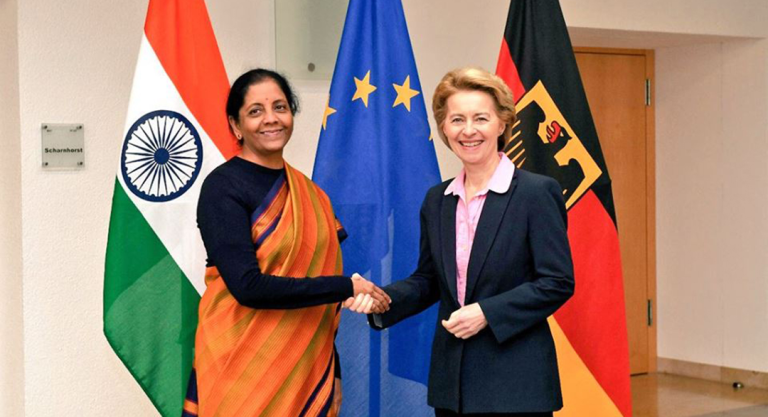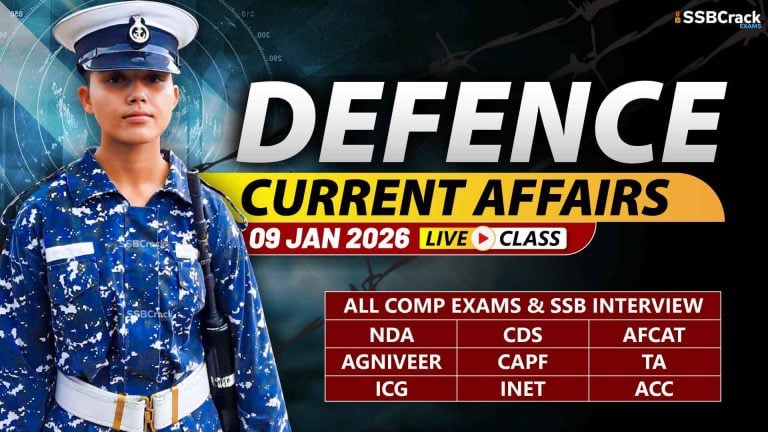Thailand and Cambodia are engaged in a border conflict primarily because of long-standing disputes over the exact demarcation of their shared boundary, with particular flashpoints around ancient Hindu temples like Preah Vihear and Ta Muen Thom.
Why Are Thailand and Cambodia Engaged in A Border Conflict?
The roots of the conflict trace back to colonial-era treaties and ambiguous maps, compounded by surges of nationalist sentiment and recent political crises in both countries.
Key Factors Behind the Conflict
- Disputed Temples and Borders: Much of the tension centers on the areas around the Preah Vihear and Ta Muen Thom temples. The International Court of Justice (ICJ) awarded sovereignty over the Preah Vihear temple itself to Cambodia in 1962, but the surrounding territory has remained contested, as both sides interpret colonial-era treaties (notably the Franco-Siamese Treaty of 1904) differently.
- Colonial Legacy: The border was drawn via agreements between France (then ruling Cambodia as part of Indochina) and the Kingdom of Siam (now Thailand). The lack of precise surveying and the use of different maps led to persistent ambiguity as to the true border, fueling repeated disputes in following decades.
- Nationalism: Skirmishes have often coincided with heightened nationalist rhetoric in both countries, with governments using the disputes to rally domestic support.
- Recent Events: The current flare-up began in May 2025 with the killing of a Cambodian soldier, followed by retaliatory measures, border closures, and diplomatic downgrades. The escalation peaked in July 2025 with gunfire, artillery, and air strikes exchanged at several sites along the border, especially near the Ta Muen Thom temple.
- Political Crises: Domestic politics have also played a role. In Thailand, the suspension of Prime Minister Paetongtarn Shinawatra amid allegations of ethical misconduct and a controversial phone call with Cambodia’s former leader coincided with—and potentially aggravated—the border crisis. Some analysts argue that elements within Thailand may be leveraging the border dispute to shape internal political dynamics.
Recent Clashes and Accusations
- Both countries accuse each other of initiating violence; Thailand blames Cambodia for rocket and artillery attacks on civilians, while Cambodia accuses Thailand of bombing roads and violating its territory.
- Landmines remain a legacy issue, with each side claiming the other has planted new mines in contested zones, further escalating hostilities.
- Scores of civilians have been killed or injured, with thousands displaced along the frontier.
Attempts at Resolution
- While the ICJ and ASEAN have occasionally intervened, their rulings have not resolved the underlying disputes, as both nations insist on bilateral negotiations and retain strong nationalist stances.
- Recent months have seen failed efforts at de-escalation and reciprocal trade and border restrictions, with each country blaming the other for continued violence.
Caveats and Limitations
While the basic historical and territorial causes of the conflict are well documented, the immediate triggers and allegations of aggression remain contested, with both sides presenting conflicting narratives. The precise casualty figures and the extent of the damage are still uncertain as of July 2025.
In summary, the Thailand-Cambodia border conflict is the product of unresolved colonial-era demarcations, disputes over ancient temples, intertwined nationalist politics, and recent domestic political upheaval. Despite international rulings, the border remains a flashpoint for periodic violence and diplomatic crises.
